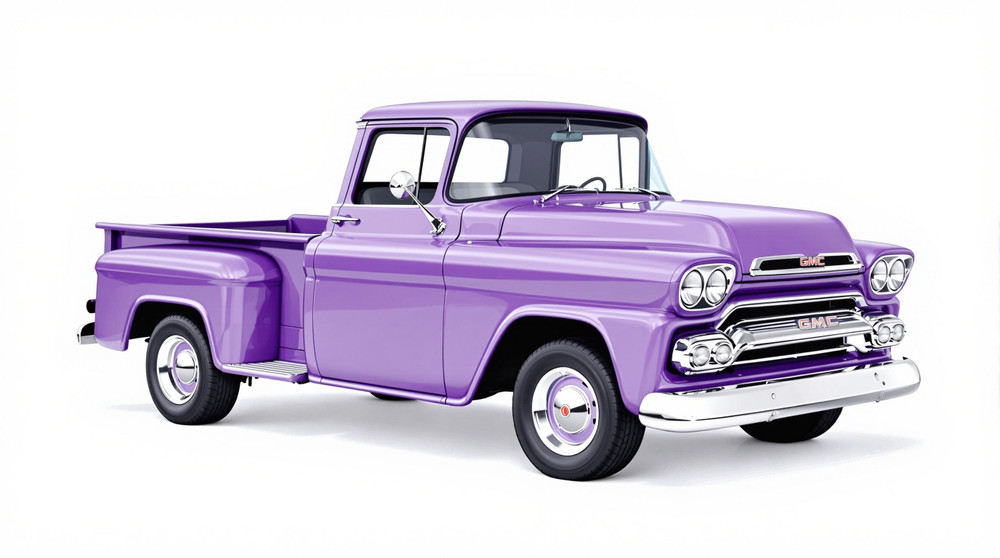Image of 1959 Gmc 250, Note: These illustrations use artistic license and may differ from actual historical models.
Performance Metrics
Fundamental Metrics
Emotional Appeal
MMP Rating
| Engine Specifications | |
|---|---|
| Engine: | Inline 6, V8 |
| Displacement: | 235.5 cu in (3.9 L) for Inline 6, 283 cu in (4.6 L) for V8 |
| Horsepower: | 145-185 hp |
| Torque: | 210-275 lb-ft |
| Compression Ratio: | 8.0:1 |
| Ignition System: | Conventional breaker-point ignition system |
| Cooling System: | Liquid-cooled |
| Performance Specifications | |
| 0-60 Time: | Estimated 15-20 seconds |
| 1/4 Mile Time: | Estimated 20-25 seconds |
| Top Speed: | 75-85 mph |
| Transmission and Drive | |
| Drive Type: | Rear-wheel drive |
| Transmission Type: | 3-speed manual, 4-speed manual, 2-speed automatic |
| Fuel and Efficiency | |
| Fuel System Type: | Carburetor |
| MPG: | Estimated 10-15 mpg |
| Dimensions and Brakes | |
| Brakes: | Drum brakes |
| Wheelbase: | 123.25 inches |
| Weight: | 3,500-4,000 lbs |
Note: Specifications for classic cars are given to the best of our ability, considering the limited and variant data available.
The 1959 GMC 250: A Testament to Industrial Strength and Style
When the 1959 GMC 250 rolled off the production line, it was more than just a vehicle; it was a symbol of rugged American capability and design. Crafted by General Motors, a titan in the automotive industry, the GMC 250 was built to meet the demands of the post-war boom—a time when America was expanding its horizons and needed vehicles that could keep pace. Notably, this truck was part of GMC's "Blue Chip" series, which stood out for its enhanced features and options, setting a new standard for trucks of that era.
Design and Innovation
The exterior of the 1959 GMC 250 was a blend of utility and style, with its distinctive front grille and prominent hood emblem catching the eye of truck enthusiasts. The body was solid and squared-off, a testament to the era's design ethos, with a long bed that promised ample cargo space. Inside, the cabin featured durable materials designed to withstand the rigors of heavy use, yet there was an unexpected level of comfort for a vehicle in its class. Technological advancements included improved electrical systems and a more robust chassis. Color options ranged from classic whites and blues to more vibrant hues, with two-tone paint jobs being particularly popular among buyers. The most iconic body style was undoubtedly the step-side bed, which combined functionality with a classic look that remains sought after by collectors today.
Historical Significance
The 1959 GMC 250 didn't just transport goods; it transported ideas—about what trucks could be and how they could serve the American public. It bridged the gap between the no-frills work vehicles of the past and the more comfortable, versatile trucks we know today. Its design influenced future generations of pickup trucks, setting a precedent for combining strength with style.
Performance and Handling
With a robust inline-six or optional V8 engine, the 1959 GMC 250 was no slouch in performance. While top speed and acceleration figures may seem modest by modern standards, for its time, it provided ample power to get the job done. The ride was firm, as expected from a workhorse, but it handled bumps with a reassuring solidity. Drivers could expect to hear the distinct rumble of the engine—a sound that spoke of reliability and power.
Ownership Experience
The GMC 250 was versatile; it served as a daily driver for some, a dependable work truck for others, and even found its way into classic car shows. Its straightforward mechanical design meant that maintenance and repairs were relatively easy for the average owner, contributing to its longevity on the road.
Fun Facts
Did you know that some 1959 GMC 250s were outfitted with Napco four-wheel drive, making them some of the most capable off-road vehicles of their time? While not record-breakers in speed, these trucks were champions of endurance and reliability. Though not commonly associated with celebrities or high-profile events, their work ethic made them unsung heroes in countless personal histories.
Collector's Information
Today, the 1959 GMC 250 is a cherished piece among classic truck collectors. While production numbers were not as low as some limited-run vehicles, finding one in good condition can be a challenge. As for value, well-maintained models can fetch anywhere from $20,000 to $40,000 or more, depending on originality and condition. The market has seen an appreciation for these trucks over time, as enthusiasts seek out vehicles that embody the spirit of mid-century American automotive craftsmanship.
Conclusion
The 1959 GMC 250 is more than just a classic truck; it's a piece of American history on wheels. Its blend of strength, style, and simplicity has earned it a revered spot in the pantheon of vintage vehicles. For those lucky enough to own one, it represents an era when cars were built to last and designed with a purpose. The legacy of the 1959 GMC 250 continues to endure, much like the enduring rumble of its engine on a quiet country road.
1959 Gmc 250 Catalog of Parts
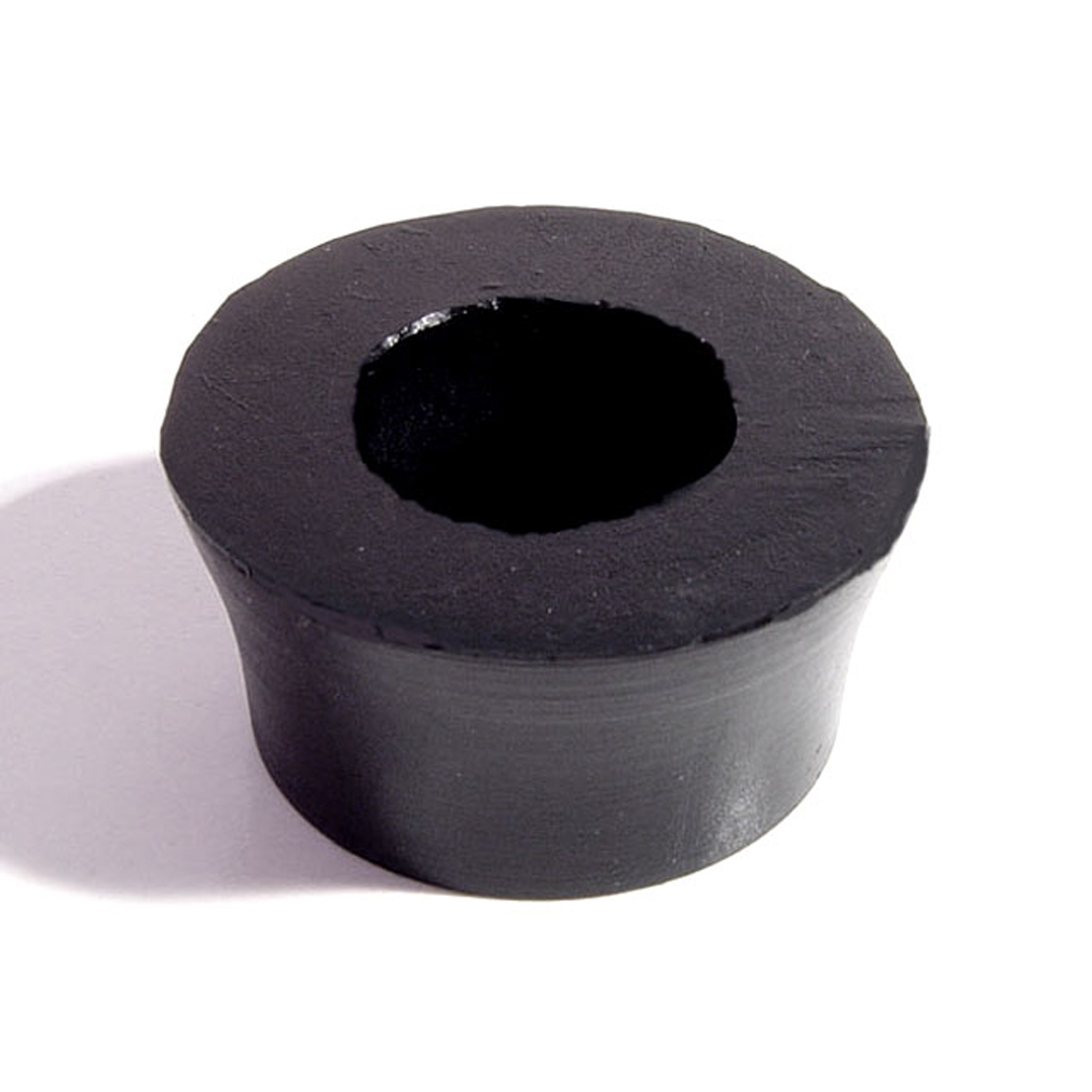 1959 GMC 250 Shock Absorber Grommet. 1" bottom O.D., 5/8" high-BN 10Shock Absorber Grommet. 1" bottom O.D., 5/8" high., with 5/8" I.D. Each
1959 GMC 250 Shock Absorber Grommet. 1" bottom O.D., 5/8" high-BN 10Shock Absorber Grommet. 1" bottom O.D., 5/8" high., with 5/8" I.D. Each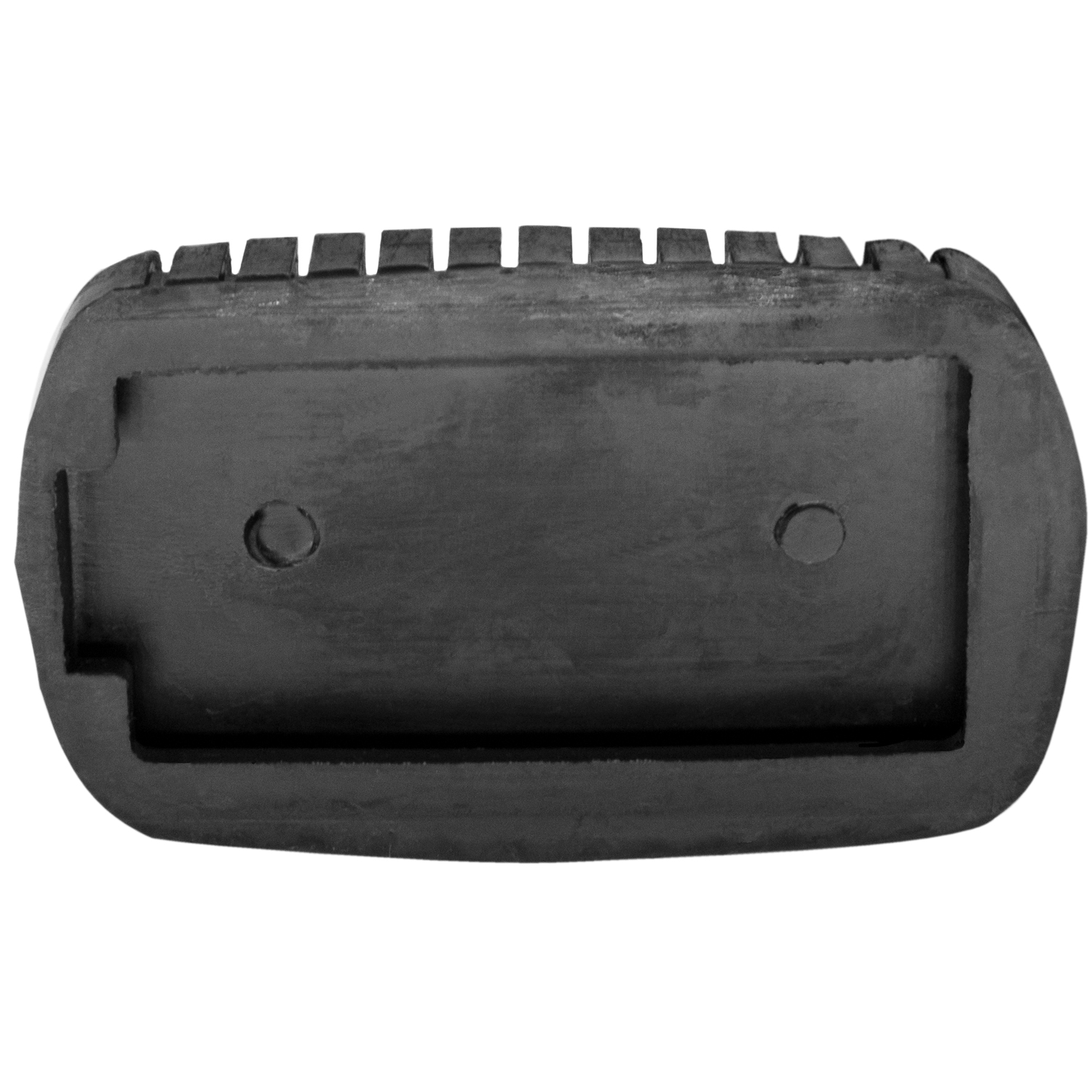 1959 GMC 250 Clutch and Brake Pedal Pad. 2-1/2" wide X 3-7/8" long-CB 100-A/EAClutch and Brake Pedal Pad. 2-1/2" wide X 3-7/8" long. Each
1959 GMC 250 Clutch and Brake Pedal Pad. 2-1/2" wide X 3-7/8" long-CB 100-A/EAClutch and Brake Pedal Pad. 2-1/2" wide X 3-7/8" long. Each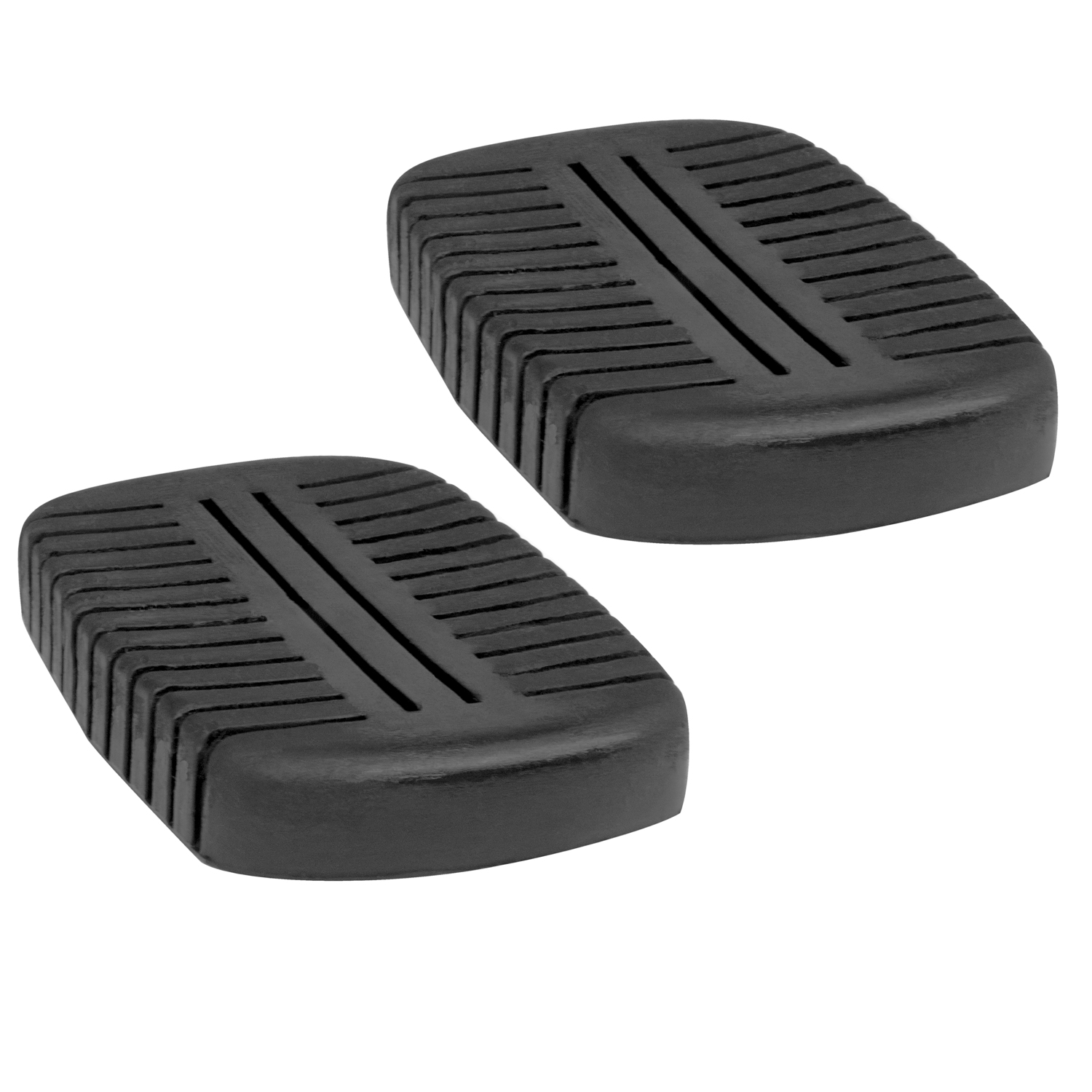 1959 GMC 250 Clutch and Brake Pedal Pads. 2-1/2" wide X 3-7/8" long-CB 100-A/PRClutch and Brake Pedal Pads. 2-1/2" wide X 3-7/8" long. Pair
1959 GMC 250 Clutch and Brake Pedal Pads. 2-1/2" wide X 3-7/8" long-CB 100-A/PRClutch and Brake Pedal Pads. 2-1/2" wide X 3-7/8" long. Pair 1959 GMC 250 Clutch and Brake Pedal Pad. Perfect-CB 100-EACHClutch and Brake Pedal Pad. Perfect. 2-5/8" wide X 3-3/4" long. Each
1959 GMC 250 Clutch and Brake Pedal Pad. Perfect-CB 100-EACHClutch and Brake Pedal Pad. Perfect. 2-5/8" wide X 3-3/4" long. Each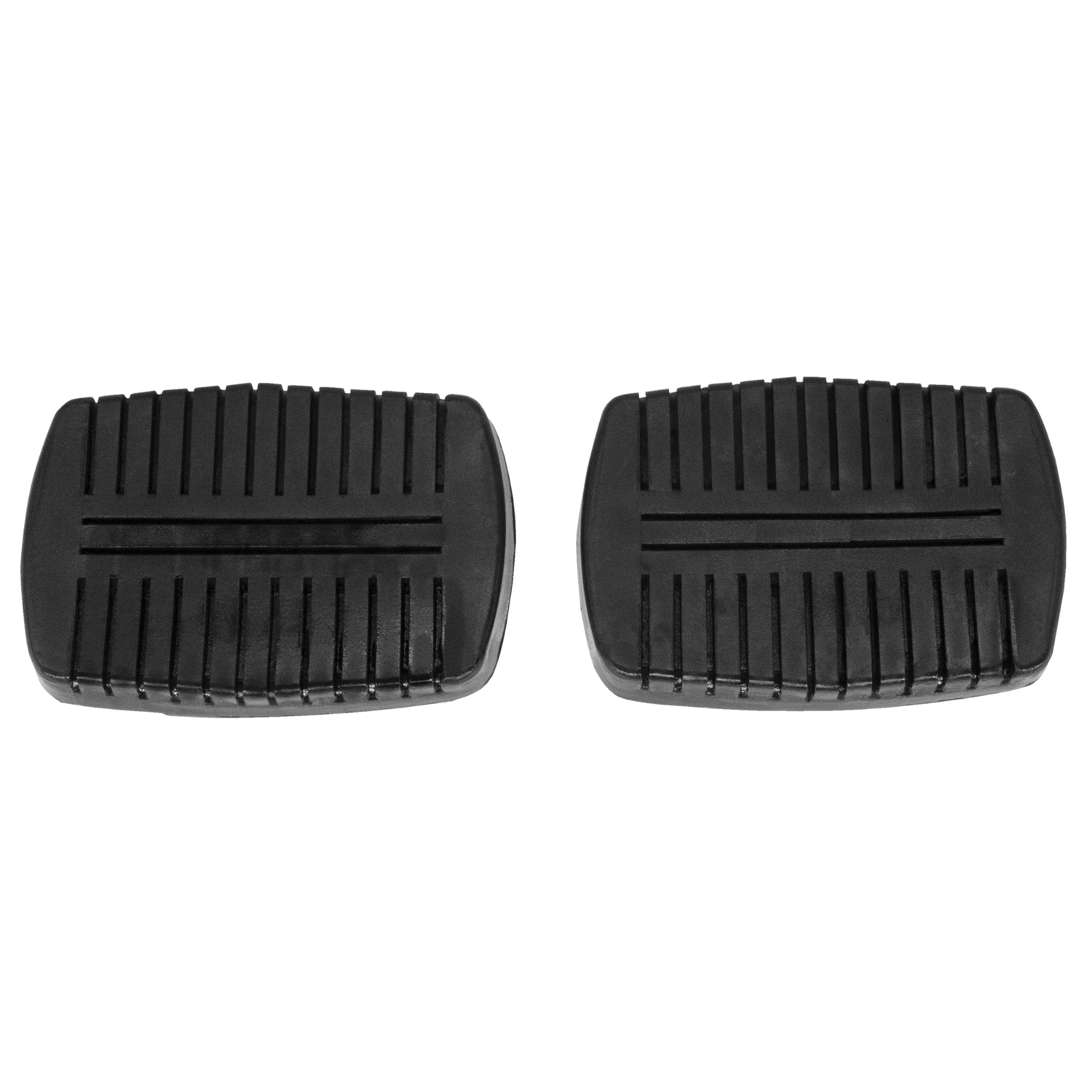 1959 GMC 250 Clutch and Brake Pedal Pads. Perfect-CB 100-PAIRClutch and Brake Pedal Pads. Perfect. 2-5/8" wide X 3-3/4" long. Pair
1959 GMC 250 Clutch and Brake Pedal Pads. Perfect-CB 100-PAIRClutch and Brake Pedal Pads. Perfect. 2-5/8" wide X 3-3/4" long. Pair 1959 GMC 250 Rear Lower Motor Mount. Two used per vehicle-MM 20-ARear Lower Motor Mount. Two used per vehicle. Replaces OEM #3789949. Each
1959 GMC 250 Rear Lower Motor Mount. Two used per vehicle-MM 20-ARear Lower Motor Mount. Two used per vehicle. Replaces OEM #3789949. Each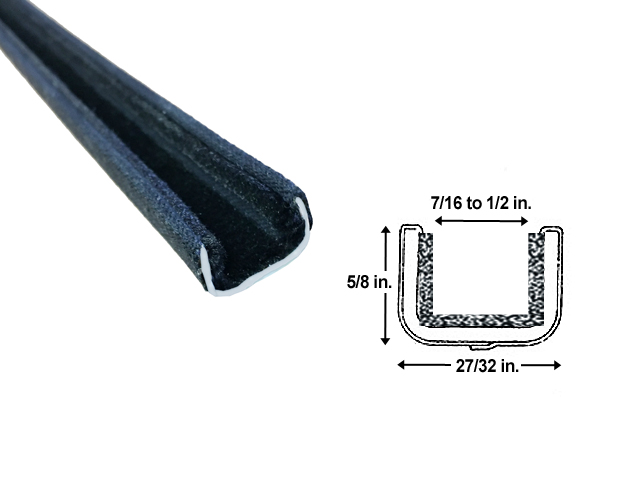 1959 GMC 250 Flexible window channel-WC 18-60Flexible window channel. Fits '50-'63 Chevrolet and GMC full-size pick-up trucks. 60 in. long. Each.
1959 GMC 250 Flexible window channel-WC 18-60Flexible window channel. Fits '50-'63 Chevrolet and GMC full-size pick-up trucks. 60 in. long. Each.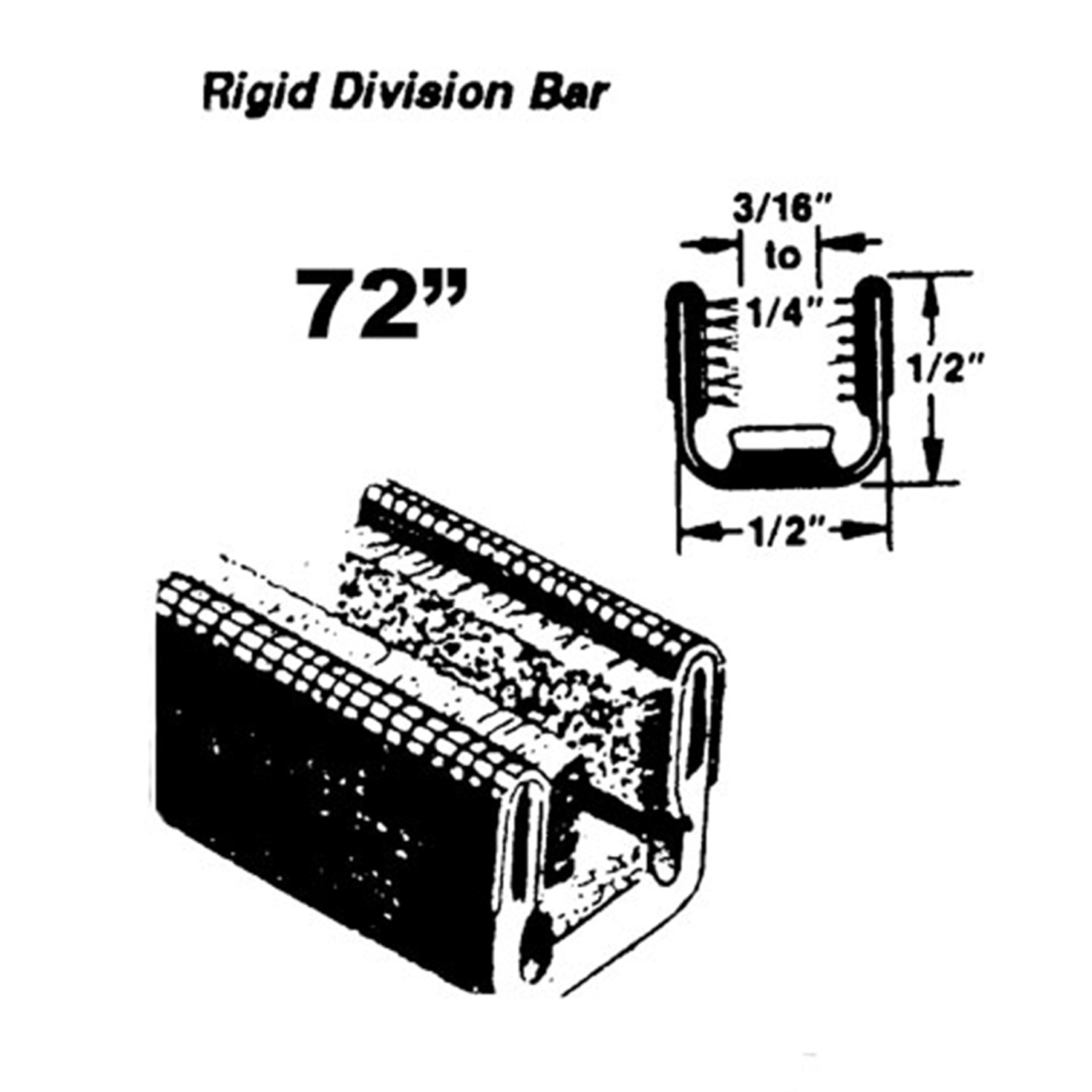 1959 GMC 250 Upper and lower rigid division-bar channel-WC 25-72Upper and lower rigid division-bar channel. Unbeaded, pile-lined. 72 in. long. Each. NOTE: $20 special shipping charge applies for domestic orders. Call or email for overseas shipping costs. Part can be sectioned into two equal lengths to reduce overseas shipping costs.
1959 GMC 250 Upper and lower rigid division-bar channel-WC 25-72Upper and lower rigid division-bar channel. Unbeaded, pile-lined. 72 in. long. Each. NOTE: $20 special shipping charge applies for domestic orders. Call or email for overseas shipping costs. Part can be sectioned into two equal lengths to reduce overseas shipping costs.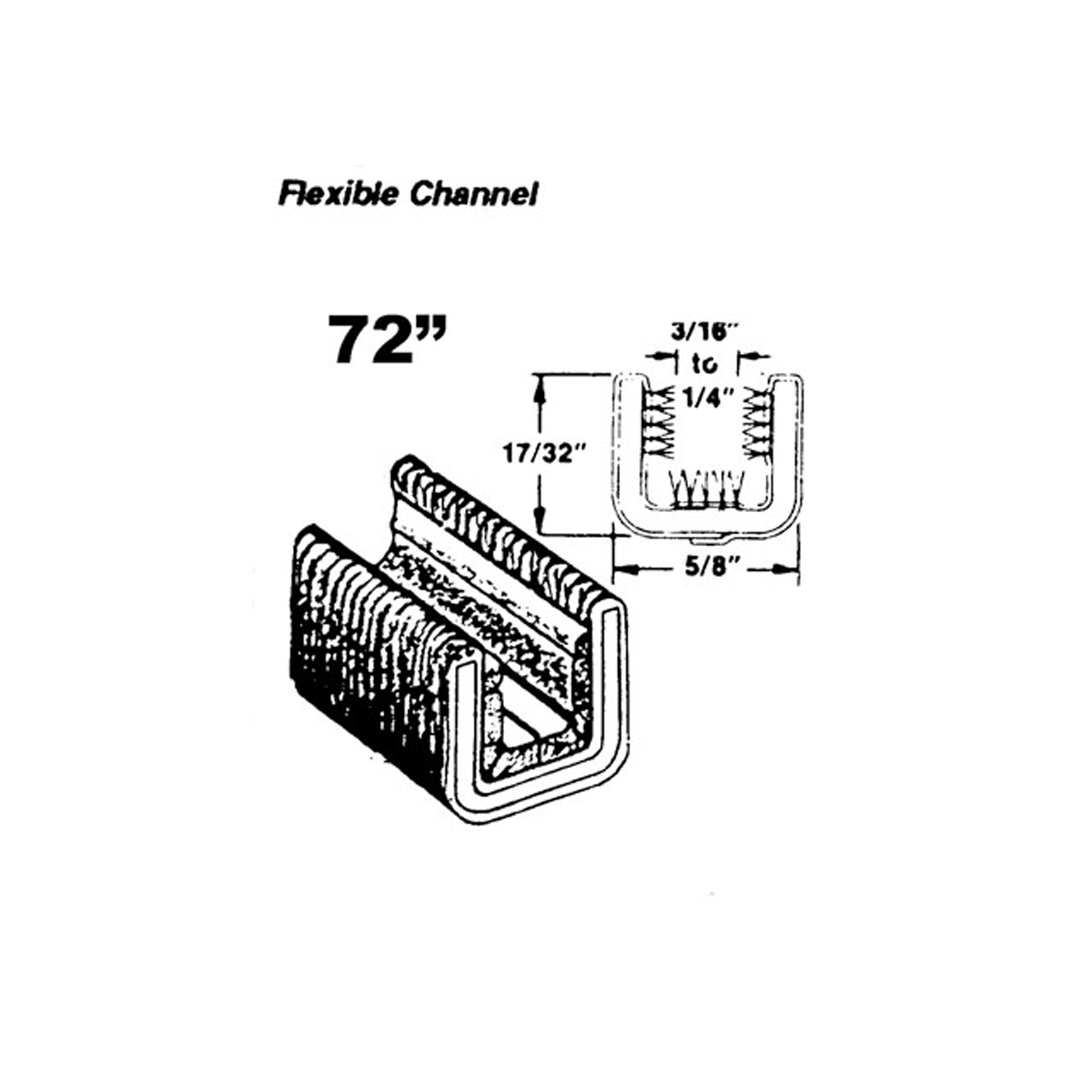 1959 GMC 250 Flexible glass-run channel-WC 26-72Flexible glass-run channel. For models without framed side glass. Unbeaded, pile-lined. 72 in. long. Each. NOTE: $20 special shipping charge applies for domestic orders. Call or email for overseas shipping costs. Part can be sectioned into two equal lengths to reduce overseas shipping costs.
1959 GMC 250 Flexible glass-run channel-WC 26-72Flexible glass-run channel. For models without framed side glass. Unbeaded, pile-lined. 72 in. long. Each. NOTE: $20 special shipping charge applies for domestic orders. Call or email for overseas shipping costs. Part can be sectioned into two equal lengths to reduce overseas shipping costs.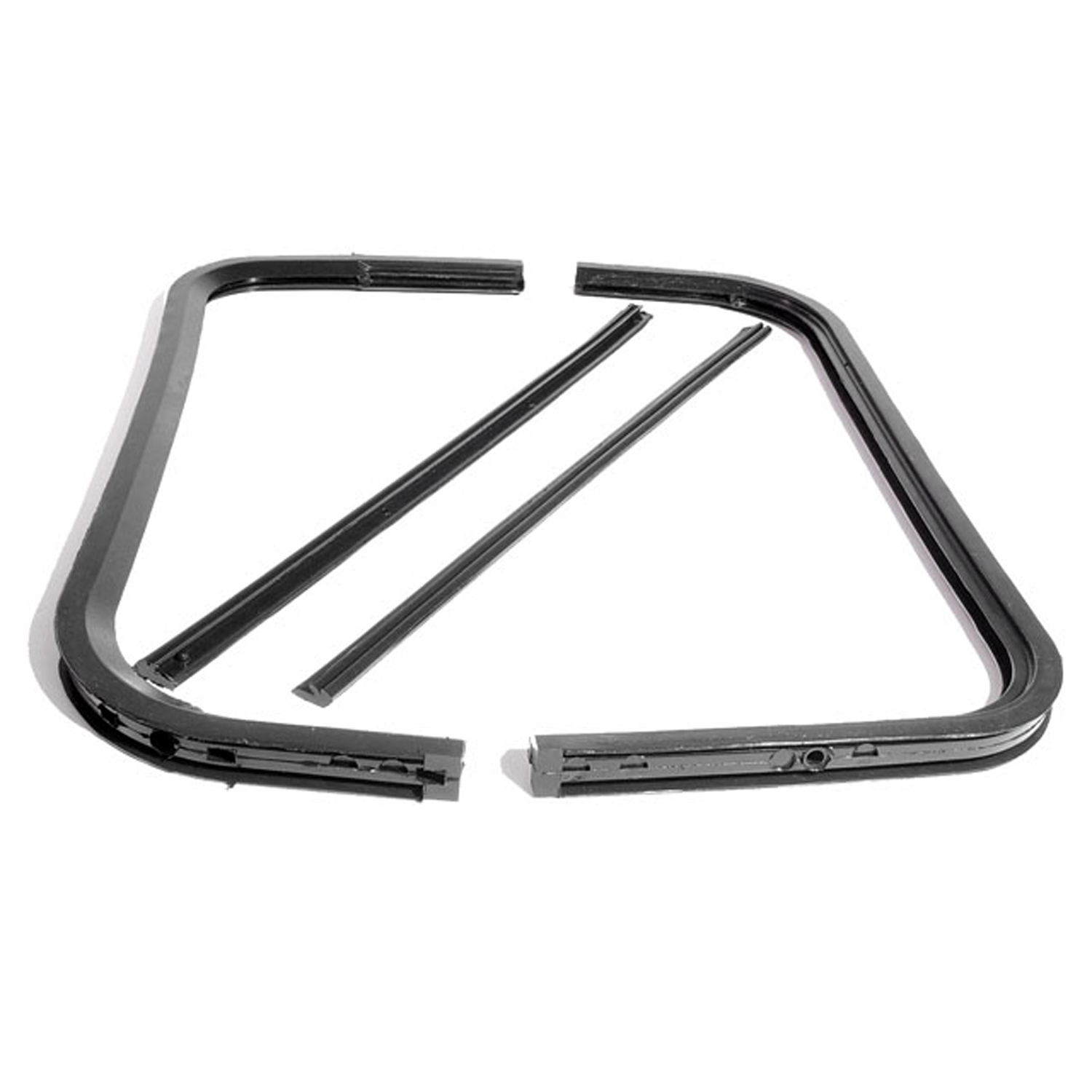 1959 GMC 250 Front Vent Window Seals w/ Vertical Division Bar-WR 2007Front Vent Window Seals w/ Vertical Division Bar. 27", 15-3/4". For 2nd series. Pair R&L
1959 GMC 250 Front Vent Window Seals w/ Vertical Division Bar-WR 2007Front Vent Window Seals w/ Vertical Division Bar. 27", 15-3/4". For 2nd series. Pair R&LWhy Choose Metro?
For over 100 years, Metro Moulded Parts has been the pinnacle of quality in classic car restoration parts. Our commitment to precision and authenticity in every component ensures a perfect fit and an OEM-level appearance.
- Expert Craftsmanship & Quality: Each part is a testament to our dedication to reliability and perfection, crafted from original designs and thoroughly tested.
- Advanced Technology: We use cutting-edge techniques to create flawless, long-lasting parts that surpass others in performance.
- SuperSoft Sponge – The Ultimate Door Seal: Not only are our door seals 30% softer than competitors', but they're also guaranteed to never leak. They effectively reduce wind and road noise, enhancing your classic car's comfort and driving experience.
- Proudly American: Our parts are a product of American craftsmanship, made in the USA with a spirit of excellence and heritage.
- Unrivaled Warranty: We back our products with a 30-year industry-leading warranty, a testament to our confidence in their quality.
Join us in preserving the legacy of classic cars with parts that are crafted for perfection, not just made.

